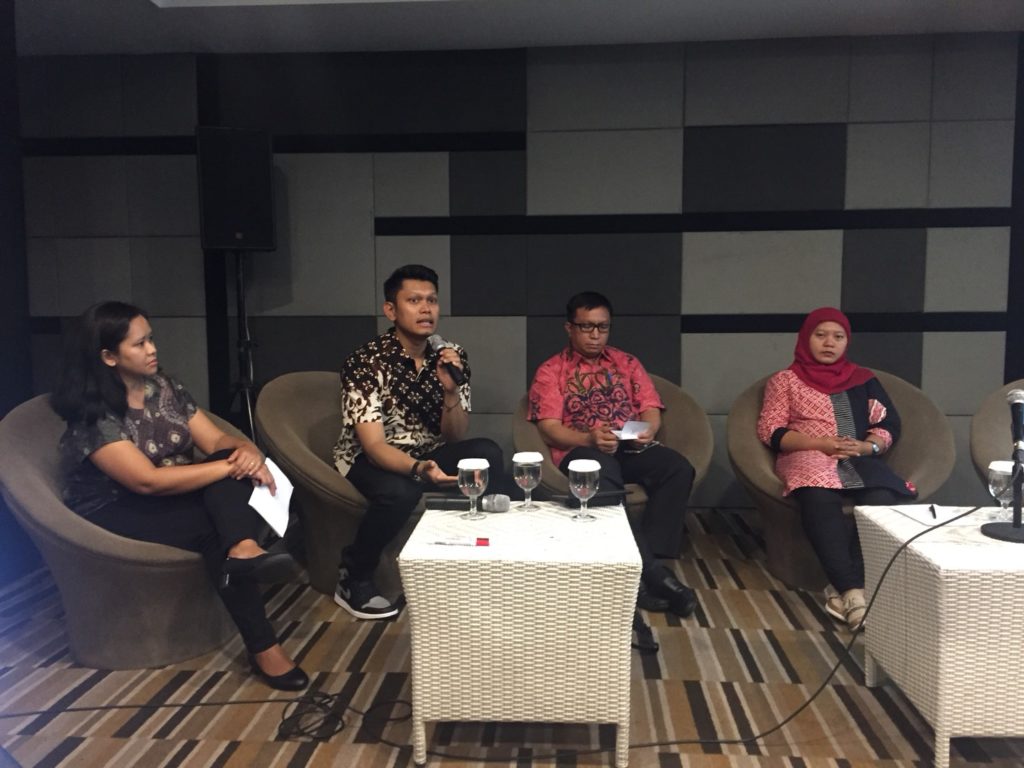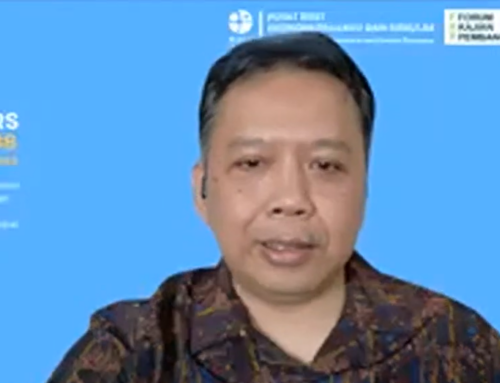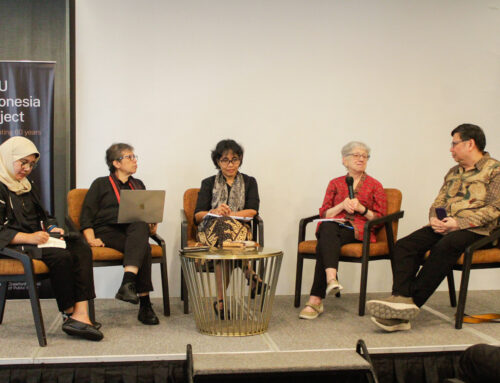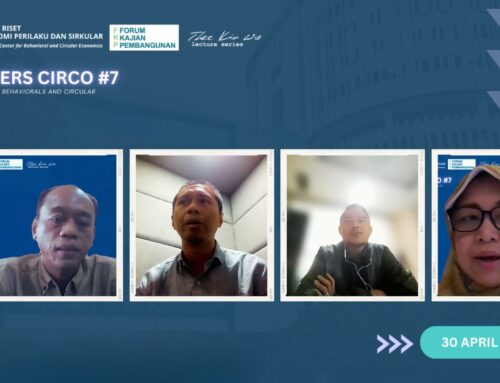Being a country that is highly dependent on natural resources, Indonesia has always been at risk of the “Dutch Disease” or the resource curse where development in the resource-rich sector suppresses growth in other sectors. With that in mind, attempts of creating a greener, more sustainable economy have risen in recent years. On Wednesday, 26 September 2018, Article 33 hosted the last FKP event in September, entitled “Mendorong Ekonomi yang Lebih Hijau”.
Ermy Ardhyanti (Article 33) began the discussion by presenting her study on Indonesia’s journey towards a more sustainable economy. Indonesia’s reserves of natural resources are predicted to be depleted by 2030. As a response, the government has gradually reduced the contribution from extractive industries—especially coal mining—to the GDP from 2011 to 2015, and has continued to plan a reduction for the following years. However, due to the volatility of international coal price, when the price fell, the government deviated from its initial plan and increased coal exports in 2018. Indonesia has yet to move on to the era of post-extractivism since local economies are still especially dependent on non-renewables and are at risk of collapsing if commodity prices suddenly fall. Therefore, Ardhyanti urged governments to start planning a transition to a non-extractive economy.
Ariswanjaya (Green Trade Initiative/Inisiatif Dagang Hijau or IDH) continued with a perspective from an NGO who has worked closely with local governments such as South Sumatra and West Kalimantan Provinces in planning and implementing green growth strategies. IDH and their local government counterparts formulated a Green Growth Plan based on environmental, social, and economic analyses. With local governments and other stakeholders (e.g. producers, consumers, and local communities) IDH also produced a Production, Protection, Inclusion (PPI) plan, which consists of detailed targets, responsibilities, budget plan, timeline, as well as a monitoring system that can be followed by every stakeholder. IDH’s business model ensures that farmers will profit from the collaboration with business owners. Moreover, this model also allows consumers to verify the ethicality and sustainability of products in the market.
Next, Joko Tri Haryanto (Finance Ministry’s Fiscal Policy Agency/Badan Kebijakan Fiskal or BKF) presented his research on whether or not Indonesia will face the resource curse. Haryanto analyzed the revenue growth, profit sharing funds, and human development index (HDI) of every major island’s mining areas. His study found that Indonesia might be facing a mining saturation phase (kejenuhan tambang), described by the low value added and insignificant contribution of mining to the economy. On the other hand, the study also found that mining areas tend to have a higher HDI. Therefore, Haryanto suggested that mining be used as a means to develop other sectors. He also suggested that the government initiate the transition to another sector before the downfall of the mining era.
Finally, Saur Parsaoran (Regional Development Planning Board or BAPPEDA of East Kalimantan) presented the region’s attempt to shift into a more sustainable economy. East Kalimantan was heavily dependent on mining and was thus highly affected by price fluctuations. In 2016, it was the only region in Indonesia that had a negative growth. The situation worsened by the so-called economic leakage, where profits from the mining sectors were taken outside the region since owners of mining companies were not East Kalimantan locals. To address this problem, the government formulated a long-term transformation plan, which ultimately aims to make East Kalimantan the center of agroindustry and agroenergy in Indonesia. According to the plan, East Kalimantan is currently in the phase of increasing value added from natural resources (hilirisasi), limiting coal, oil, and palm exports in basic commodities, and developing infrastructure. This plan is scheduled to conclude in 2050 by which the region should rely mostly on innovation and human resources. Parsaoran believes that this transformation is imperative to avoid the resource curse, and strong commitment and collaboration are highly essential to make it successful.
For the complete presentation and Q&A session, please refer to the video and materials provided.





